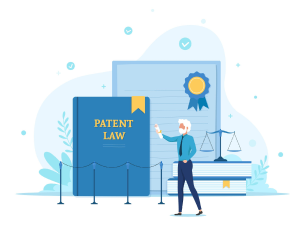Direct selling is a great way for entrepreneurs to start their own businesses and achieve financial independence. It’s indeed an exciting journey. However, to become successful in this industry, you must adhere to legal regulations and industry standards.
Trust me, non-compliance is no joke and can lead to severe consequences like legal penalties, hefty fines, and even the shutdown of your business.
Here we will discuss the top strategies for ensuring legal compliance in direct selling business that will help you avoid legal troubles and build a successful business.
Compliance in Direct Selling Business

Compliance compliance compliance!!!
Now, what does compliance mean?
To put it in simple words, compliance means following rules and regulations set by the government or industry-specific organizations. This helps businesses and organizations ensure that they operate safely, ethically, and legally.
Non-compliance, on the other hand, results in fines, penalties, and even legal actions. It is mandatory for all individuals and organizations to be aware of the rules and regulations that apply to their industry.
Compliance can be categorized into two
- Regulatory or external compliance that covers relevant external laws, rules, and business standards that the company must abide by.
- Corporate or internal compliance that is concerned with the company’s own rules, regulations, and internal controls.
Understanding Direct Selling Laws and Regulations
Some specific laws and regulations that apply to direct selling businesses include the Federal Trade Commission Act, which prohibits unfair or deceptive practices, and the Pyramid Scheme Prohibition Act, which makes it illegal to operate a pyramid scheme. State-level anti-pyramid laws can also vary, but generally, they prohibit direct selling companies from paying commissions or bonuses based on recruiting new members rather than selling products or services.

The FTC (Federal Trade Commission) is the primary agency for regulating direct selling business in the United States. It covers various aspects of direct selling business including advertising, earnings claims, product claims, and business practices. Staying informed about the FTC’s regulations is essential to ensure that your business is in compliance with the law.

State franchise laws vary by state and may require franchisors or direct sellers to register or disclose information. Compliance with state franchise laws is essential to avoid penalties and fines.
Consumer protection laws are designed to protect consumers from fraudulent or deceptive practices. These laws can vary by state, but they generally require direct sellers to provide accurate information to their customers.
Ensuring Compliances with Direct Selling Laws

Direct sellers should take several steps to ensure compliance with laws and regulations. First and foremost, they must be familiar with the laws that apply to their specific business and stay up-to-date on any updates. Training and education programs will be helpful to ensure that direct sellers understand the laws and regulations that apply to their business and how to comply with them.
Developing clear policies and procedures is another important step in ensuring compliance with direct selling laws. Companies must have clear guidelines for compensation plans, marketing materials, and other aspects of their business. Regular compliance audits can also help direct selling companies identify areas where they may be at risk for non-compliance and make necessary changes.
Understanding the consequences of non-compliance is also crucial for direct selling. Fines, penalties, and legal actions can result from non-compliance with direct selling laws and regulations. It’s important for direct sellers to take compliance seriously and ensure that their business practices comply with the laws and regulations.
Best Practices for Direct Selling Companies
Direct selling companies can also take steps to ensure compliance with laws and regulations. Ethical business practices, transparency in compensation plans, and truthful marketing and sales materials are all key elements of compliance. In addition, Direct selling companies should also have clear policies and procedures in place and conduct regular compliance audits to ensure that they are in compliance with all the rules and regulations.
Examples of companies that have faced legal issues due to non-compliance with direct selling laws and regulations
- Neora, an MLM skincare company, was charged with a lawsuit by the Federal Trade Commission (FTC) against charges of illegally operating as a pyramid scheme and making claims that its supplements can treat Alzheimer’s disease, Parkinson’s disease, and brain injuries caused by repetitive trauma.
- Nutritional supplements MLM AdvoCare paid $150 million after the FTC charged it with illegally operating as a pyramid scheme in October 2019.
- Herbalife, another nutrition MLM, paid the Securities and Exchange Commission $20 million in September 2019, to settle charges it misled investors about its China business.

However, compliance with legal requirements is not just about avoiding legal issues. It’s also about building trust with customers and establishing a strong reputation in the industry. By adhering to best practices for compliance, direct selling companies can protect themselves and their business and build a loyal customer base.
Strategies for Ensuring Legal Compliance in Direct Selling
In direct selling, it’s important to ensure that you follow legal guidelines and regulations to avoid potential legal issues. Here are some strategies to stay in compliance in direct selling businesses.
Stay Up-to-Date with Laws and Regulations

For any direct selling business, staying informed about laws and regulations is very crucial. These laws and regulations vary by country, state, and even city. Hence, it is important to stay updated on all relevant legislation.
Keeping up with the regulatory changes is also critical because it ensures that your business is always staying compliant with the most current requirements. To run legally, direct selling businesses must adhere to several laws and regulations, with notable emphasis on complying with the regulations established by the FTC, state franchise laws, and consumer protection laws as we have discussed earlier.
To stay informed about laws and regulations, you can join industry associations, attend conferences, and consult with legal experts.
Implement Clear and Transparent Business Practices

Clear and transparent business practices are essential for legal compliance in direct selling. One should be transparent in all business dealings, including income disclosures, product claims, and refund policies. Transparency fosters customer trust and avoids legal issues. It also makes your company appear more professional and reliable. Implementing clear and transparent business practices necessitates training your team, clearly communicating policies and procedures, and monitoring compliance.

Income Disclosures
Income disclosures provide potential direct sellers with information about the earning potential of the business opportunity. Direct selling companies are required to provide income disclosures that accurately and truthfully represent the earnings of their direct sellers. It is essential to train your team about income disclosures and communicate them clearly to potential direct sellers.

Product Claims
Product claims are statements about the products or services your direct selling business offers. Claims must be truthful and not misleading. Ensuring that your team understands the products and services offered and is trained to make truthful and accurate claims is essential.

Refund Policies
Refund policies should be clear and easy to understand. Direct selling companies are required to provide a refund policy that is fair and easy to use. It is essential to communicate the refund policy to customers and to provide training to your team about how to handle refunds.
Monitor and Enforce Compliance

Monitoring and enforcing is another important strategy to maintain legal compliance in your direct selling business.
Regularly monitoring the team’s activities can help you identify areas of non-compliance and take corrective action before it becomes a legal issue. Setting up a system for monitoring compliance and training your team on compliance policies and procedures is critical.
Taking action against non-compliance is required to enforce compliance. This may entail disciplining team members who violate policies, terminating relationships with non-compliant direct sellers, or even reporting non-compliance to regulatory agencies. Enforcing compliance sends a clear message to your team that you take compliance seriously and will not tolerate non-compliance.
Build a Strong Corporate Culture

Compliance stays a top priority in strong corporate culture. This is where team members are committed to upholding compliance standards. To build a robust corporate culture, senior leaders within the network of your direct selling business can prioritize compliance and make it clear that compliance is a top priority. You can also form a compliance committee within your company that monitors and enforces compliance.
Training is also necessary for building a strong corporate culture. By providing training to your team on compliance policies and procedures, you can ensure that everyone is aware of compliance requirements and understands how to comply with them. Moreover, You can also create compliance incentives, such as recognition programs for team members who consistently follow compliance standards.
Consult with Legal Experts

Legal experts can guide the most recent laws and regulations, as well as compliance policies and procedures. They can also help draft contracts and agreements that comply with applicable laws and regulations.
When selecting a legal expert, choosing someone with experience in direct selling industry compliance is essential. They should be well-versed in the laws and regulations that govern direct selling businesses and have a track record of successfully assisting them with compliance issues.
Compliance Automation in Direct Selling

Are you still relying on spreadsheets and emails to keep tabs on compliances?
Oh, come on, you are living in 2023. The time has passed to switch these manual methods to automation. If network marketing can be automated, why can’t we do the same for compliance?
Yes, you heard it right. We can automate compliance. Don’t know how? don’t worry! We are here to help.
Think of having a super-powered assistant who helps you monitor your security policies, accounts, and inventories. Who always stays up to date with changing security standards. Well, that’s exactly what compliance automation does!
By integrating advanced technologies, companies can identify policy violations and monitor their social media channels with sophisticated tools. If anyone posts content that doesn’t align with the company’s guidelines, the system can flag it immediately, allowing the organization to take action swiftly and decisively. In short, compliance automation can streamline workflows, bolster security, and give companies peace of mind knowing their compliance standards are being upheld.
Why Compliance Automation?
Implementing an intelligent compliance solution can significantly impact achieving favourable business results. Automation in compliance helps in,
- Enforce industry-specific controls
- Boost productivity
- Step up your business
- Build a security-conscious culture
Final Thoughts
Legal compliance is not an option in direct selling; it is necessary. Implementing the top strategies discussed in this article can help you stay on the right side of the law while building a successful and long-term direct selling business. Remember that the trust of your customers ultimately determines your company’s success, and trust can only be earned through ethical and compliant practices.
With the right approach, you can succeed in direct selling without compromising legal compliance.



